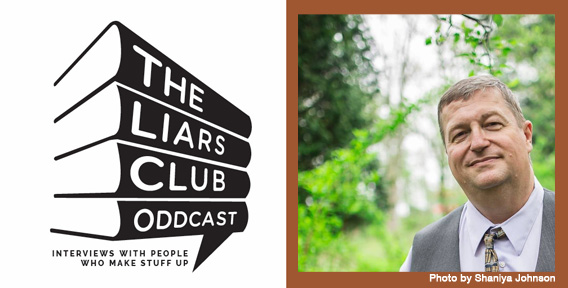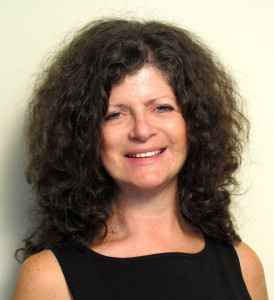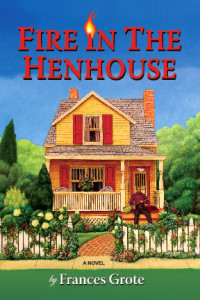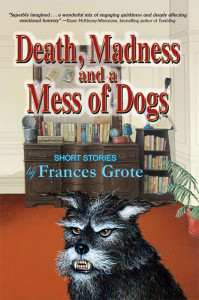Tag: story collection
Andy Duncan, Award-winning short-story author, breaks up the Oddcast
This week on the Liars Club Oddcast, a conversation with Nebula, World Fantasy, and Theodore Sturgeon Award-winning short science-fiction-and-fantasy fiction author Andy Duncan. His short stories are currently available in two collections, Beluthahatchie, and The Pottawatomie Giant, to be joined by a third, An Agent of Utopia, this fall from Small Beer Press.

Fran Grote: My Readers Matter the Most
The third interview from a workshop I conducted called The Bridge–this one is with author Fran Grote. I met Fran originally years earlier in another workshop. She worked fearlessly and feverishly at her writing, and in the end chose to go independent of traditional publishing. She has written and published now a serio-comic novel, Fire in the Henhouse, and a collection of stories that defies categorization, Death Madness & a Mess of Dogs.
What got you started writing?
Someone asked me recently why I write, and my instant answer was, “Because I have to.” Real life being more like the SATs than any of us wants to admit, I’m going to stick with my first answer. The human mind thrives on story. Stories not only soothe and instruct us, they engage just about every bit of our brains, making us see and feel as well as think. They create autonomic responses throughout our nervous systems, and mold memories. They are an addiction. And so, when I found myself on a three-week business trip to China with nothing to read during my down time, I finally got off my duff and started writing down the stories I’d been telling myself my whole life. Everybody’s got some of those. Luckily, those weren’t the ones I showed to anybody else. But that’s what got me started.
You didn’t ask me what’s made me continue, but just in case you’re curious, I don’t know how it is for anybody else, but for me writing has become an even more powerful addiction than reading. My family can always tell when I’ve had a day with no writing in it. I have all the classic signs of withdrawal – mood changes, fidgety inability to get anything substantive done, and nobody better dare get between me and the nacho chips.
What draws you to certain books and stories?
I started to answer this question by looking at the things I’ve recently read that fell into the “can’t put this down” category. On the surface, they don’t have much in common – Neil Gaiman’s Ocean at the End of the Lane; a collection of Alice Munro’s short stories written between 1968 and 1994; Endless Love by Scott Spencer. But upon closer inspection I realized these authors consistently do some very powerful things – their language isn’t just beautiful, it ignites the senses; their protagonists are painfully honest about what they think and what they want, even if that sometimes makes them not very nice. These books and stories all build a world that I know when I’m done reading, even if I didn’t know it before I started. I guess the short answer would be I’m looking for a story that sucks me in and doesn’t let go of me even long after I’ve finished reading it.
Do you see recurring themes emerging in your work?
Is this a trick question? she asked, smiling inside. And then she remembered something a very astute teacher once told her, that each reader brings her or his own perspective to a story, and that perspective will often render their experience very different from what the author thought it would be. So with that in mind, I will answer honestly that to me there is only one theme in my work, and that is the struggle to gain power over the things that control us. Granted, sometimes that struggle shows up in the form of a guy on work-release trying not to get tagged for a crime he didn’t commit, or of two elderly sisters in a Hell inspired by the tenets of personalized medicine. And one of the things that never fails to surprise me is the number of laughs I get whenever I read my work aloud. I’m always delighted that people find the way I see the world as funny. My work often looks at the darker side of human behavior, so it’s only fair that I offer readers the chance to laugh. [Check out FIRE IN THE HENHOUSE here.]
At what point in the process did you decide to create your own imprint and go it alone?
If I recall correctly, I was semi-conscious, delirious with fever and trying to lift the front end of an SUV with my bare hands, when some voice in my head said, hey, there’s probably something you can do with your spare time that might be easier than this, but just a little. I’m only slightly exaggerating. To be fair, there are some self-publishing routes that are way easier than what I’ve chosen to do, but I wanted to treat this endeavor as a business, not just as an avenue to getting my work in print. And it was that desire to focus on quality that really tipped the scales in favor of self-publishing for me. My non-fiction writing about the pharmabio industry has resulted in multiple national speaking engagements, my memoir has won accolades, but when I tried to sell my fiction, I was invisible. My voice, I was told, is too quirky to be considered mainstream, too mainstream to qualify as genre. People suspected I might have an audience, but there was no easy, well-trodden path to find it. And worst of all, being Nobody meant I was not likely to get top of the line attention and support. So I started my own imprint in order to ensure I am always working with the best – the best editors, the best designers and artists, the best bookshops. The response from readers indicates that they see and appreciate that.
What have you learned as a result of eschewing traditional publishing?
The biggest thing I learned is that it’s not for the faint of heart. Putting all the time and work required aside for a moment, there is still a significant part of the industry that denigrates anything self-published. Many prestigious awards flatly refuse to consider self-published work. Other people throughout the traditional publishing industry make blanket statements about self-published books that are dismissive and unfairly critical. I have had the occasional bookstore buyer hang up on me or ask me to leave the store when I request to have my books carried, although I want to hasten to say that many, many independent bookstores have been generous and supportive and, along with my readers, have made this an incredibly wonderful journey.
Why do I keep doing it? Because my readers are the people who really matter. My first novel reached #1 on Amazon, and my short story collection (DEATH, MADNESS & A MESS OF DOGS) was featured in Kirkus Indie Best of 2014. Those are the things that tell me I’m doing something right. There are bestselling authors among the self-published, just as there are in traditional publishing. The opposite is also true – not everything self-published is going to knock people’s socks off. Bottom line? Bring quality to your work in every way you know how, think first and foremost about your readers, and don’t quit your day job. I haven’t yet.
What advice do you have for someone who wants to be a writer?
Get started. Just like every other job, the key to success is butts in seats. Write every day, for at least half an hour. Write snippets, write notes to yourself, write down those random thoughts. Someday one of your characters is going to sound like a genius for saying them. Don’t let anyone discourage you. Recognize that no matter how good you may be when you start, over time you will get better – so don’t stop making your work better the first time you think you’re done. Take advice, but remember that sometimes it is best taken with a grain of salt. Not everyone who loves your work will have the means to buy or publish it; not everyone who criticizes it has earned the chops to be a critic. Don’t give up your dream, but don’t let it distract you from the real work of improving your craft. Most of all, no matter what anybody tells you, it IS a competition, so put everything you’ve got into creating the best damn winning entry you can.
Fran, thank you very much.





